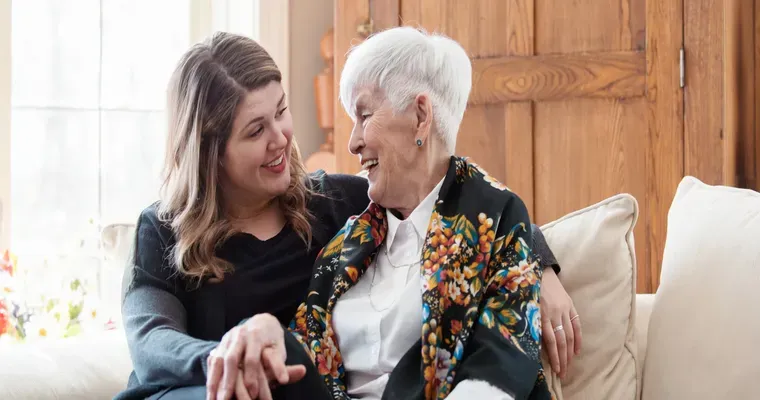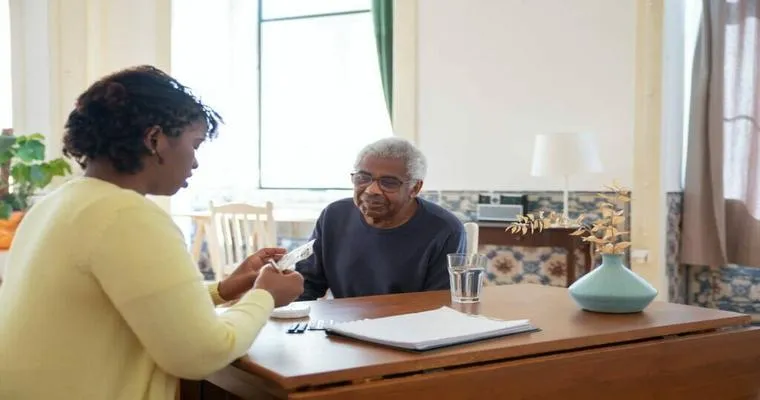As family dynamics evolve, it is not uncommon for "adult grandchildren" to feel "uncomfortable" visiting a "declining grandparent". This discomfort can stem from various factors, including emotional challenges, the burden of caregiving, and the inevitable changes that aging brings. Understanding these feelings is crucial for fostering healthy family relationships and ensuring that bonds remain strong despite the complexities of aging.
Understanding the Reasons for Discomfort
Several reasons contribute to the unease that adult grandchildren may feel when visiting a declining grandparent. First and foremost, witnessing the decline of a loved one can be emotionally taxing. Adult grandchildren often find themselves grappling with feelings of sadness, helplessness, and anxiety as they confront the reality of their grandparent's deteriorating health. This emotional weight can make visits feel overwhelming and uncomfortable.
Moreover, the dynamics of caregiving can add layers of complexity to these visits. Many adult grandchildren may feel unprepared to take on a caregiving role, especially if they have their own responsibilities, such as careers and families. The pressure to provide support, combined with the fear of not meeting expectations, can create a barrier to visiting.
The Impact of Distance
Geographical distance can also play a significant role in the relationship between adult grandchildren and their declining grandparents. Adult grandchildren often move away for education or career opportunities, which can make regular visits challenging. When visits are infrequent, the emotional distance can grow, leading to feelings of guilt and discomfort when they finally do visit.
Navigating the Visit
For adult grandchildren who want to maintain a connection with their declining grandparent, it is essential to navigate these visits thoughtfully. Here are some strategies to make the experience more comfortable for both parties:
1. "Prepare Emotionally": Before visiting, take time to prepare emotionally. Acknowledge your feelings and remind yourself that your grandparent appreciates your presence, regardless of the circumstances.
2. "Communicate Openly": If possible, have an open conversation with your grandparent before the visit. This can help set expectations and ensure that both of you are comfortable with the visit's purpose.
3. "Keep Visits Short": If the thought of a long visit feels daunting, consider keeping visits short and sweet. This allows for meaningful interactions without it feeling overwhelming.
4. "Bring a Comfort Item": Bringing along a favorite book, photo album, or a small gift can help ease the tension of the visit and create positive memories.
5. "Involve Other Family Members": If possible, visit together with other family members. This can provide a support system and make the visit feel less intimidating.
Building a Supportive Environment
It is essential for family members to create a supportive environment that encourages adult grandchildren to maintain their relationships with declining grandparents. This can include open discussions about feelings and expectations, as well as offering assistance in caregiving roles when possible.
Encouragement and understanding from family can significantly alleviate the discomfort surrounding visits. By fostering a culture of compassion and empathy, families can help bridge the emotional gap that might exist between adult grandchildren and their declining grandparents.
Conclusion
While it is natural for adult grandchildren to feel uncomfortable visiting a declining grandparent, it is crucial to address these feelings constructively. By understanding the underlying reasons for this discomfort and implementing strategies to manage visits, families can work towards strengthening bonds and creating cherished memories during a challenging time. Ultimately, the love shared between generations can prevail, even in the face of declining health.





